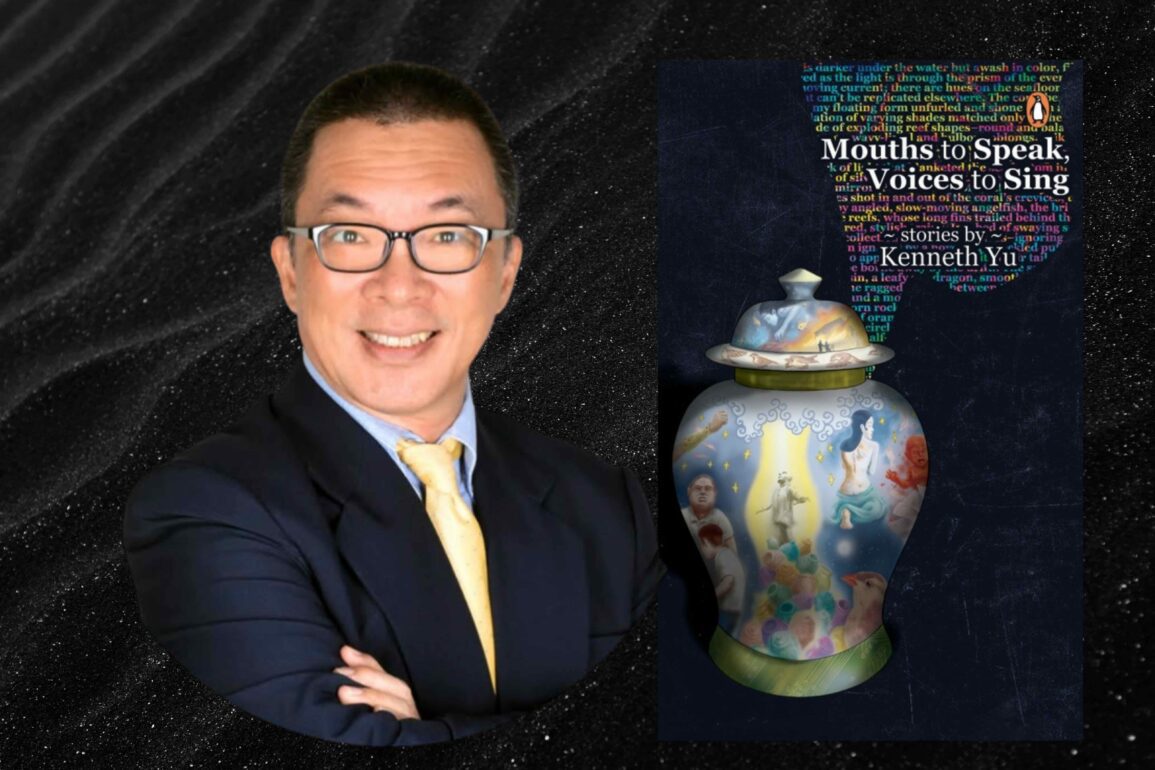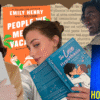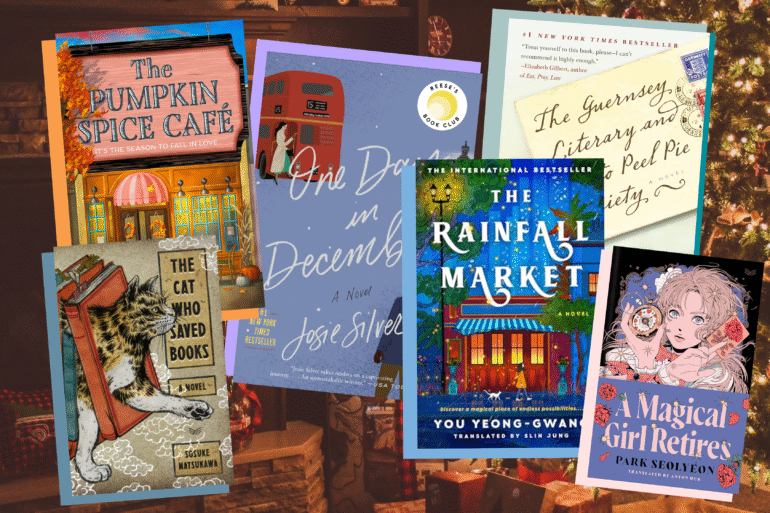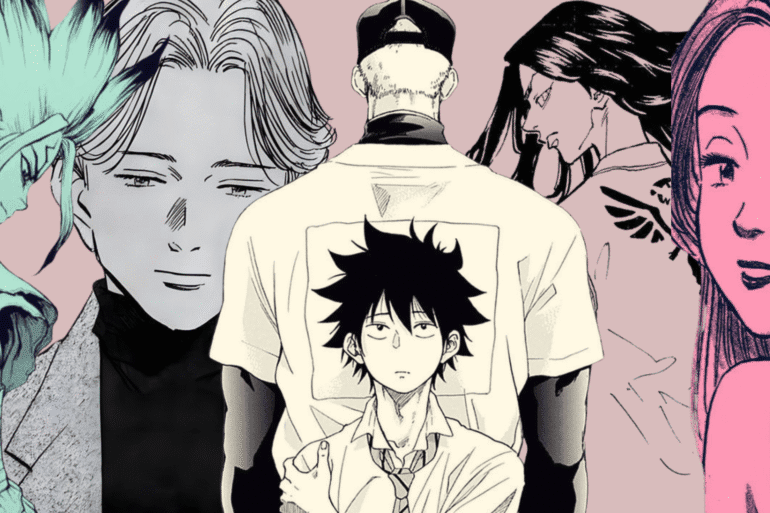A staunch literacy advocate, Yu encourages us to immerse ourselves in the “slower action of reading.”
It’s a wonderful time to be a Filipino reader. Books from all over the world are now more readily available in bookstores and libraries, and even in electronic formats. Filipino authors have also been taking up more space on shelves both here and abroad, exploring a myriad of genres from fiction to nonfiction, novels to short stories, romance to speculative fiction.
Speaking of speculative fiction, among the Filipino writers who have made their mark in the genre is Kenneth Yu. The award-winning author has also seen his short fiction published in the USA, Canada, Malaysia, and Taiwan. His short story “Cherry Clubbing” won co-third place at the 3rd Philippine Graphic Fiction Awards a few years back, and is included in his first anthology of short fiction, Mouths to Speak, Voices to Sing; Stories by Kenneth Yu (2024).
Penguin Random House Southeast Asia lauds him for being a major contributor to the growth and current popularity of genre fiction produced by Filipino writers. He is also a staunch reading advocate, and has ceaselessly pushed literacy to the youth.
The POST had the opportunity to chat with Yu on growing up in Manila in the eighties, his writing process, his love for speculative fiction, his first collection of short stories, among other bookish things. He also dished out pieces of advice to aspiring writers, as well as his top reads.
Related story: Meet this writer who’s shining the spotlight on the Filipino-Canadian experience
Related story: The POST Chats: Filipino-Chinese dancer Diane Lee on chasing big dreams
THE POST: When did you realize that you love to write? What was your earliest memory of writing?Kenneth Yu: I grew up in the ’80s, so if you’ve seen Stranger Things, especially Season 1, the four protagonists would be me and my friends, just transpose that setting to the Philippines. Our early exposure to stories was to Greek and Norse myths—no surprise there for many in my generation, even up to today. That was the gateway for me to reading pretty much anything and everything, in all genres.
My point is: a story is a story is a story, and the categorization doesn’t matter if the story finds its readers.
As a kid, reading opened up my imagination and induced a sense of wonder at the tales writers were telling. It was no surprise that the next step I took was to try and tell my own, even as an elementary student. My parents gifted me a typewriter (for schoolwork), but my earliest memory of writing is banging away at this Royal typewriter for hours trying to tell my own stories.
Related story: Dr. Willy Liangco: How this oncologist became an award-winning writer
Related story: Hear ye, bookworms! Here are eight summer reads hitting shelves soon
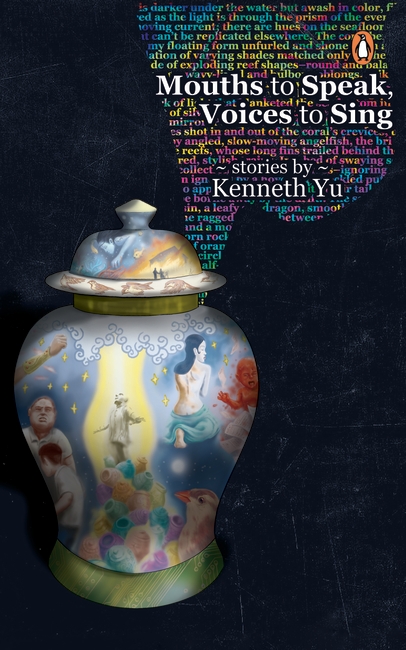


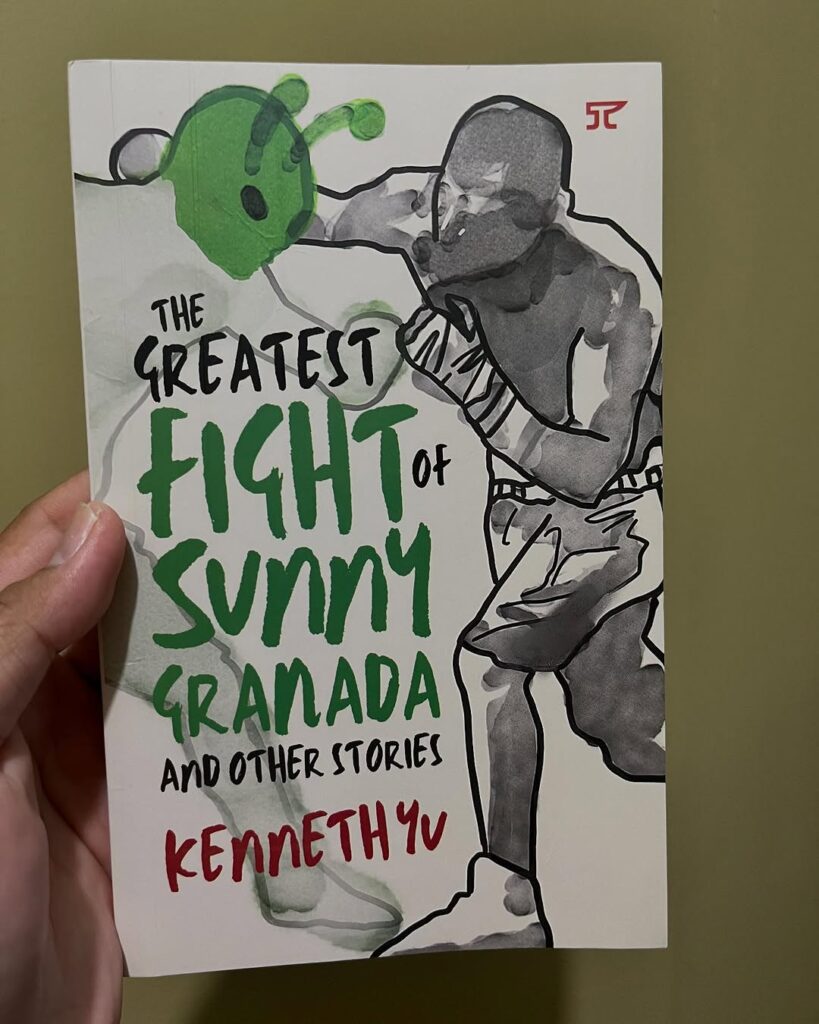


Who/what were your earliest influences in writing?
I grew up reading mostly Western writers, to name some: Tolkien, Herbert, Asimov, Conan Doyle, Christie, Vonnegut, Howard, Moorcock, Clarke, King, Straub, Bradbury, Alexander, L’Engle, Le Guin. As you can see, most of these writers were categorized under genre (fantasy, mystery, crime, suspense, science fiction, horror). Less mystery/crime/suspense, this is called speculative fiction today. Perhaps that is why my writing skews in this direction; but not just! I do write social realist also.
My point is: a story is a story is a story, and the categorization doesn’t matter if the story finds its readers.
Could you tell us about your journey toward being a published author?
I can’t say it was planned. Over the years, I just ended up churning out my stories and sending them out to various publications both here and abroad. As usual, some got accepted, some rejected, and I just kept producing and sending out. When I looked back after some time, I realized I had enough not just for one but two collections.
The first one is Mouths to Speak, Voices to Sing; Stories by Kenneth Yu published by Penguin in 2024, and the second is The Greatest Fight of Sunny Granada and Other Stories published by Anvil in 2025. I’m very happy to have two collections of short stories released within less than a year of each other, and I hope readers would find their way to checking them out.
Related story: Beyond bestsellers: How celebrity book clubs and pop culture led me to unexpected literary gems
Related story: Milan Fashion Week meets literary flair: 8 Italian contemporary writers to know
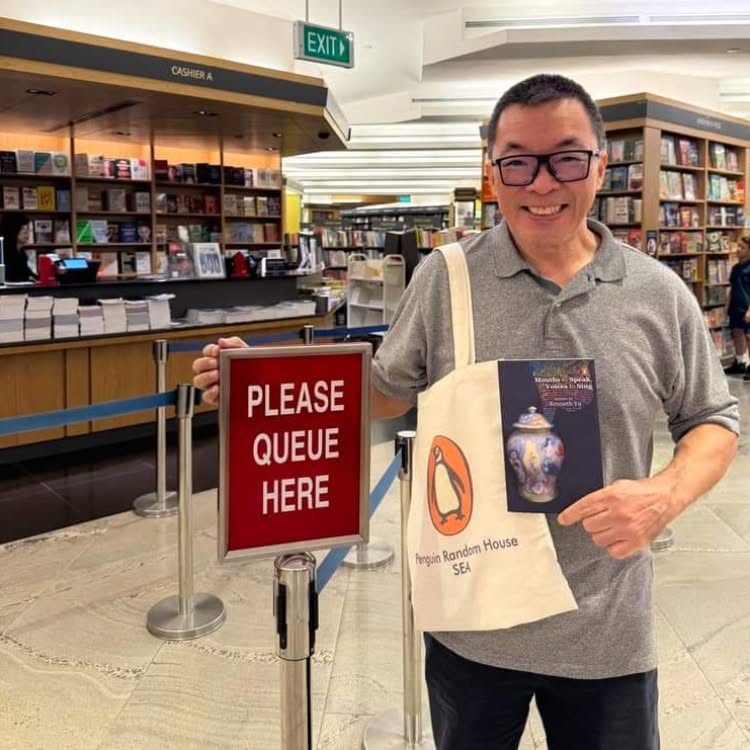





How did it feel the first time seeing your book on shelves, especially overseas?
For a writer, it can be quite thrilling. You think about having a book on the shelves of bookstores or libraries but it’s hard to think about how it will come about and then one day you look around and there your books are! I think if someone were to catch me looking at my books on those shelves, they might find me smiling at myself like some simpleton.
I remember being at Kinokuniya Bookstore at their branch on Orchard, Singapore, and there my first book was beside other books by writers from other Asian countries, and just a few steps away from writers from other parts of the world. Taking it in was kind of surreal because you never expect it, but I thought to myself, “Hey, I don’t know how this happened, but I’m not complaining!”
Where other content is immediate, there can be an attraction to slowing down and immersing oneself in the slower action of reading.
Could you tell us something about your first anthology of short fiction, Mouths to Speak, Voices to Sing? From where did you draw inspiration for your stories?
The book is a collection of short stories of mixed genres: science fiction, fantasy, a bit of horror and the supernatural, and reflects some of what intrigued me over about a dozen years or so. Various stimuli prodded me to write these tales.
Some examples: “Cherry Clubbing,” was written in anger and indignation years ago when there were news reports of a European pedophile ring in Southeast Asia that got broken up by the authorities. I don’t know if it was intentional or not, but the videos did not blur the faces of the accused, and it struck me that these people who were molesting children didn’t look like monsters. I wanted to write about how there are monsters among us, maybe within us, that we can’t recognize unless we are conscious of it.
“When You Let It Go” is a story that explores bullying, something I sadly have experience with, and it is a topic that I return to every so often. “Cricket” explores some family dynamics that I observed, and I was surprised and pleased that Levar Burton picked it up for his podcast. The title story, “Mouths to Speak, Voices to Sing”, is about my exploration of some Chinese myths in modern times.
Related story: The 2025 reading list: Han Kang, Suzanne Collins, and more literary gems
Related story: All Souls Day reading: Seven books to help us understand grief
Why short fiction? Why not, let’s say, poetry or novels?
Good question! I love short fiction because of the challenge to say something in a short medium. You have to be choosy with what you write because you only have limited space to tell your story. Having said that, I have written longer forms of narrative and perhaps one day these will see print, too. As for poetry, I read that, too, but I haven’t tried that in many years. Perhaps I’m more taken by the narrative form and the wonder of telling stories.
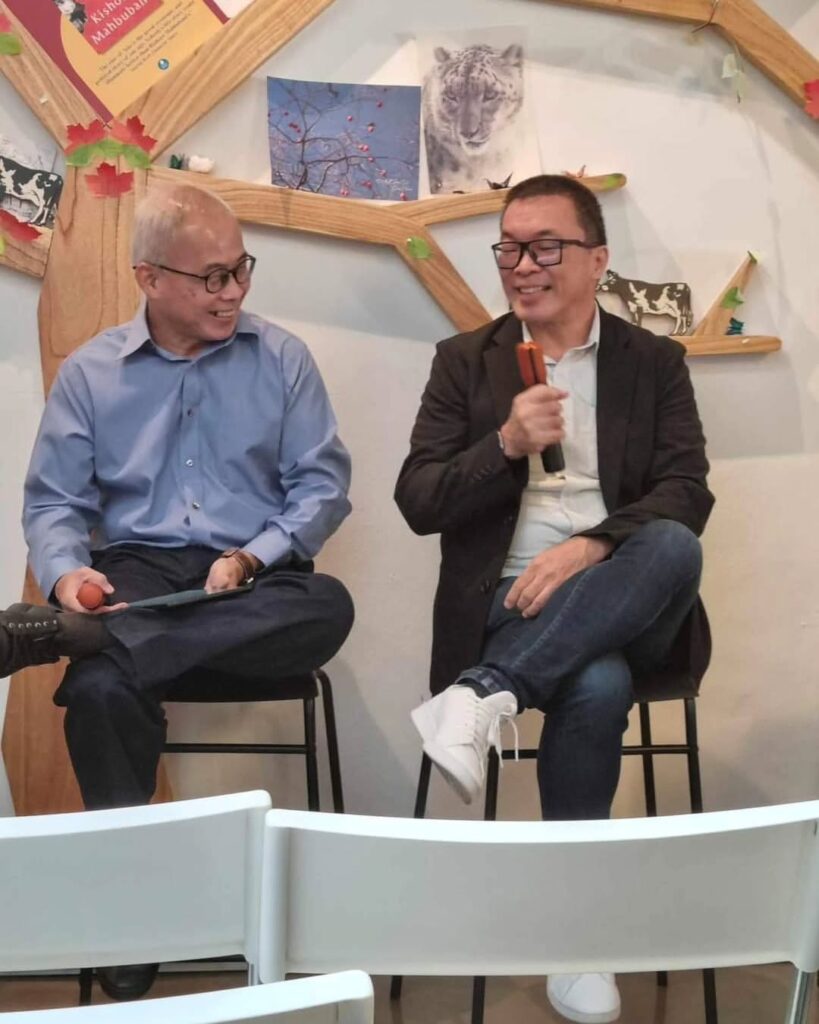


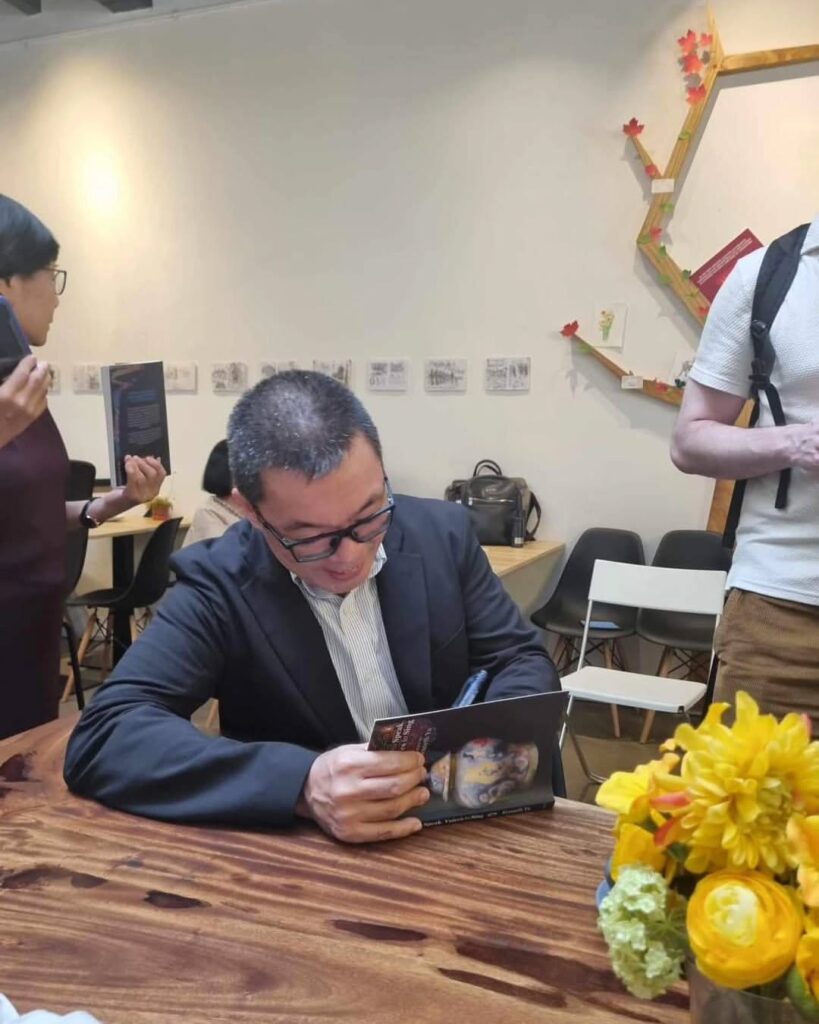


Kenneth Yu during a book talk and signing at Book Bar in Singapore in September 2024.
What drew you into speculative fiction?
I think it was the early reading material I was exposed to. As I mentioned, I started with Greek and Norse myths, and then ended up reading various authors that were available at libraries and the bookstores at that time. I was lucky that my mother was supportive of my reading habit (maybe it was because it kept me quiet and well-behaved!). This early influence led me to writing what I write, but I don’t just stay within speculative fiction; I’ve done crime/mystery/suspense as well as humor and even social-realist.
As an advocate for reading, how do you think it can be made more popular with young Filipinos given the many distractions they are exposed to, especially online?
Another good question. You are right about the many distractions that we have, and how content is consumed with immediacy. Well, if as they say in marketing, “content is king,” then the stories and books have to be honest and authentic, have to be captivating and told with emotion and understanding to be captivating.
And if content is king, it is usually followed by “Media is queen.” That means availability. Libraries and books must be accessible, whether in physical or digital form. And then, we must set an example for the younger ones by being readers ourselves. If we consume books as part of our lifestyles, if we slow down and take the time to read, then the youth will see it, too, as a worthwhile activity to take up as well.
And it does take slowing down, and in fact, that may be its appeal. Where other content is immediate, there can be an attraction to slowing down and immersing oneself in the slower action of reading, where physically we may not be moving much, but the brain is the one deeply engrossed. And I do encourage reading, in any language.
Related story: Eight books on dads and for dads
Related story: 9 summer reads for your next getaway
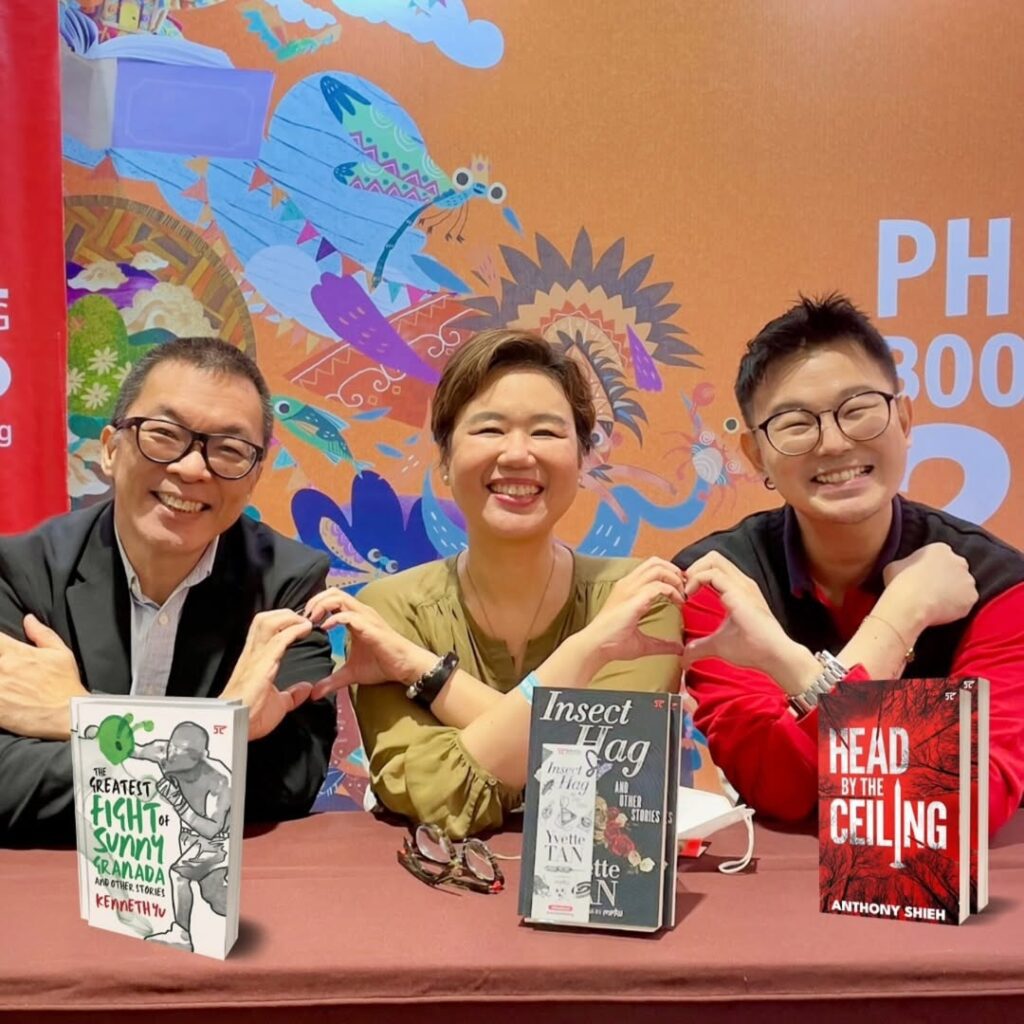


What are your recommended reads?
I would like people to consider writers from other countries, the Philippines not least of them. Penguin Random House has a wide range of writers from our neighbors in Asia like Malaysia, Singapore, Thailand, Myanmar, Vietnam. There are books as well from Japan, Korea, China. Why not try African literature? Or works written by women and LGBTQ+ writers? A widened perspective is not a bad thing.
You will never be satisfied with what you have written, but that’s part of being a writer, and you just have to give in to whatever tales are inside of you that are in need of telling.
Then, as for fellow Filipino writers, I, of course, am recommending writers I know and am friends with, such as F.H. Batacan. Exie Abola, Dean and Nikki Alfar, Yvette Tan, Anthony Hsieh, Mica de Leon, Claire Betita de Guzman, Noelle de Jesus, Danton Remoto, Vince Sales, and many more.
You may find other media (such as graphic novels) worth consuming, and that will broaden one’s reading even more.
Any tips for aspiring writers who wish to be published?
Read, just read, and keep on reading. Non-fiction and fiction. On any topic, in any genre or category. In any language. Then go out and live. Experience life. Learn and check out what fancies you and give it a try and file that away in your head and heart so that if ever it piques your interest, you can set down a story or stories around this in your writing. Then, just keep on writing and honing your skill.
That’s never-ending, and you will never be satisfied with what you have written, but that’s part of being a writer, and you just have to give in to whatever tales are inside of you that need telling. And yes, I consider reading an essential part of being a writer. You can’t be a writer if you’re not also a reader, and I started out as a reader first before I became a writer. However, you can be a reader without being a writer, and I think that’s pretty cool, too.
Related story: 5 translated books that deserve a spot on your shelf
Related story: 7 must-read contemporary female Japanese authors

